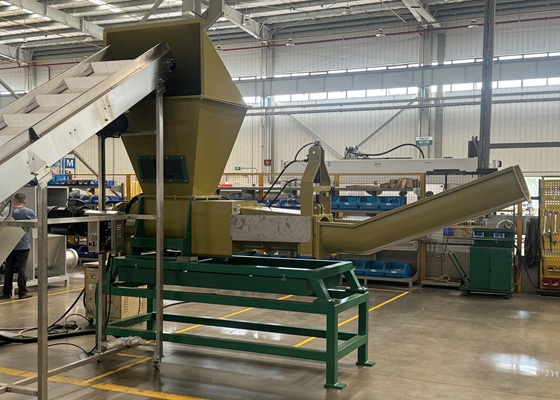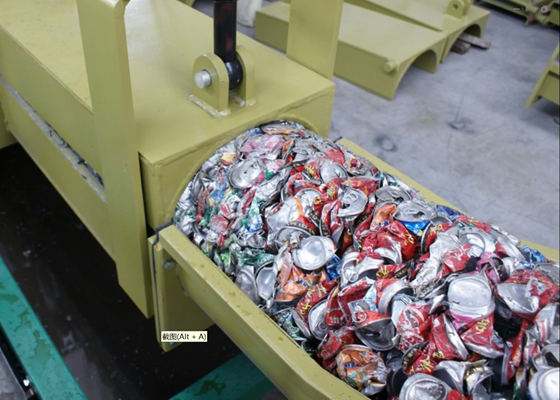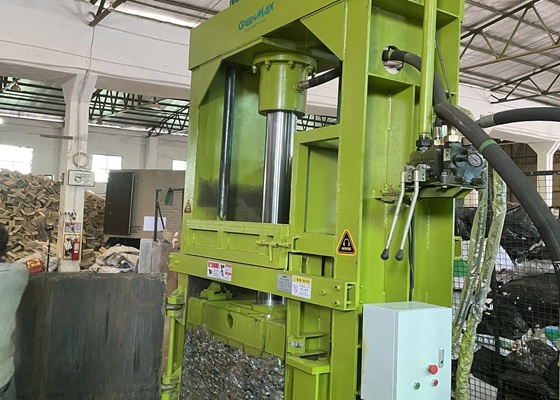Maximize Efficiency in Aluminum Can Recycling
In the aluminum can recycling supply chain, recycling stations serve as key hubs but face two major challenges: the large storage space occupied by loose cans and the rising hidden costs caused by residual liquids.
Although empty cans are lightweight, they are bulky and hard to stack, often leading to warehouse congestion and increased operational difficulty and costs. In addition, many collected beverage cans still contain leftover liquid, which—if not properly handled—can cause leaks, odors, and contamination. This also disrupts the efficiency of subsequent compression and transport, ultimately reducing the profit margin of the entire aluminum can recycling process.

To help recyclers tackle issues like limited storage space, high transportation costs, and challenging hygiene management, GREENMAX has launched two professional dewatering compactor models: the dewatering machine and the baler.
Both machines can effectively compress aluminum cans, significantly reducing their volume, improving transport efficiency, and lowering logistics costs. GREENMAX always designs aluminum can recycling solutions based on each customer's specific operational needs.
While both machines offer can compression functions, each focuses on different priorities and can be flexibly selected according to various recycling scenarios and processing requirements.

The dewatering machine is the key equipment for addressing residual liquid issues. While compressing aluminum cans, it efficiently removes leftover liquids, which are expelled by a screw mechanism and collected in a drainage tray below, preventing leaks and contamination.
This dewatering compactor uses a powerful screw to compress and dewater the cans, achieving initial volume reduction. To improve drainage, the discharge outlet is specially designed with an upward tilt, allowing liquids to flow down and collect efficiently. The drainage tray can be connected to a pipe system to direct the liquid into a designated container for centralized handling.
After dewatering, the aluminum cans are easier to stack and sell, helping to maintain an efficient and clean aluminum can recycling process.

The baler, on the other hand, is designed to compress large volumes of empty aluminum cans into dense blocks, greatly saving storage space. These compacted blocks are easier to load and transport, reducing the number of trips and fuel consumption, while also increasing the resale value of the material—making it a key tool for maximizing economic returns.
GREENMAX dewatering compactors address the two core challenges in aluminum can recycling: space waste and residual liquid, while also delivering measurable economic benefits.
By combining compression and dewatering functions through advanced machinery, GREENMAX helps recycling businesses stand out in a competitive market and transition toward a greener, more profitable operating model.

